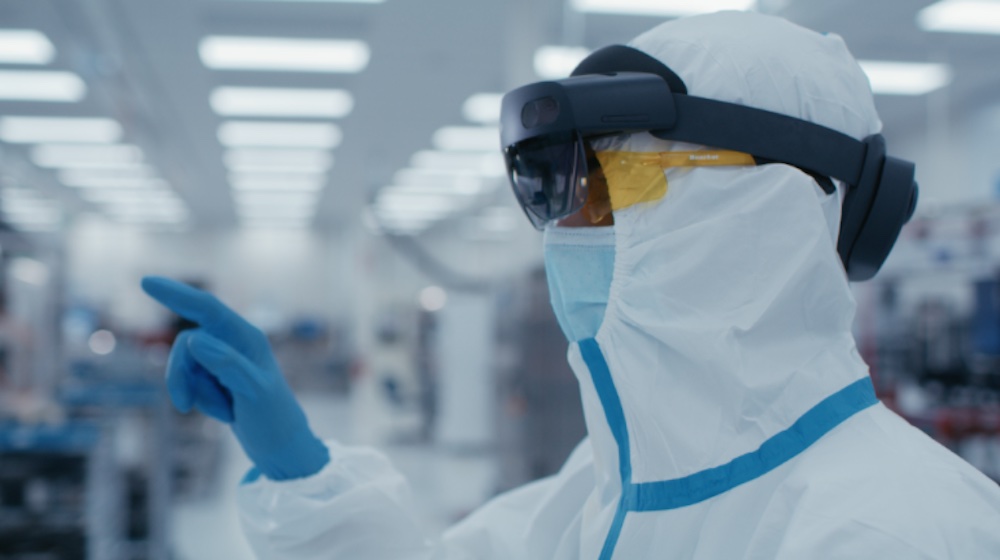Microsoft Shifts to a Software-Led Metaverse Strategy
Microsoft boss Satya Nadella has confirmed that the company is pivoting from hardware to a software-led metaverse strategy. This shift may not bode well for the company’s hardware projects such as the HoloLens.
In a keynote at the Microsoft Inspire developer conference, Nadella stressed that while Microsoft still has its sights on the metaverse, the company won’t be focusing on the development of XR hardware to take on the likes of Meta, Apple, and even upcoming players such as ByteDance’s Pico.

Microsoft Training Its Sight on Metaverse Software
Nadella stated that Microsoft is looking for ways of merging the digital and physical worlds in the metaverse and to pursue this, the company will use a “software–led approach” that is hardware agnostic and which will enable everyone to benefit from these experiences no matter the hardware at their disposal.
Microsoft’s Mesh, launched in March 2021, is an XR collaboration platform that provides the infrastructure software which brings together all the hardware across the XR spectrum and beyond for applications such as spatial collaboration and holographic meetings. The Mesh is more like an SDK and features a full suite of tools that can be used to build multi-presence collaborative XR applications. Nadella cited examples such as tablets, virtual reality headsets, PCs, and smartphones, on top of the HoloLens.
The Microsoft Mesh for Teams brings mixed reality features to the video meeting platform like avatars for virtual reality and augmented reality as well as a VR meeting room. Nadella says Mesh for Teams is already being put into use internally.
Microsoft provides other XR functions such as Teams integration for Meta’s VR workspace. There is also the social VR world Altspace in the company’s XR software portfolio. In January 2022, Nadella described the metaverse as “the next wave of the internet.”
Microsoft’s XR Hardware Challenges
Nadella’s reference to a software-led metaverse strategy in his recent keynote address suggests the company isn’t looking at pursuing new XR hardware.
Microsoft has had mixed and mostly disappointing results with its quest for XR hardware. Unlike Apple, Microsoft was one of the pioneers in the XR hardware market with its HoloLens 1 and Windows VR initiatives. However, while Facebook grew from strength to strength, Microsoft’s interest in XR hardware gradually waned off. Its Windows VR headsets have only seen perfunctory updates at best.
Microsoft also failed to launch the Xbox VR headset in 2016 even though it was reportedly almost ready for release.
Recent reports on the progress of its HoloLens 3 headset haven’t been promising either.
Microsoft’s exit from the hardware market would be a blow for the industry as a whole as that would leave only Meta and Sony as the leading drivers of hardware innovation. Research and development work on AR and VR headsets is currently costing Meta billions of dollars, an investment that is cross-financed from its advertising business. Meta might therefore not necessarily see Microsoft’s exit from the hardware market as a positive development. Besides, the revenue forecasts for this segment will stay low for a few more years.
https://virtualrealitytimes.com/2022/07/24/microsoft-shifts-to-a-software-led-metaverse-strategy/https://virtualrealitytimes.com/wp-content/uploads/2021/01/Microsoft-HoloLens-2-New-Features-600x360.jpghttps://virtualrealitytimes.com/wp-content/uploads/2021/01/Microsoft-HoloLens-2-New-Features-150x90.jpgMetaverseTechnologyMicrosoft boss Satya Nadella has confirmed that the company is pivoting from hardware to a software-led metaverse strategy. This shift may not bode well for the company’s hardware projects such as the HoloLens. In a keynote at the Microsoft Inspire developer conference, Nadella stressed that while Microsoft still has its...Rob GrantRob Grant[email protected]AuthorVirtual Reality Times - Metaverse & VR
